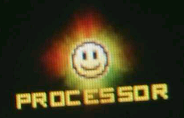Official Everybody Edits Forums
Do you think I could just leave this part blank and it'd be okay? We're just going to replace the whole thing with a header image anyway, right?
You are not logged in.
- Topics: Active | Unanswered
#1 2016-08-27 22:38:08
- Processor
- Member

- Joined: 2015-02-15
- Posts: 2,246
Processor's Guide To Intellectual Property
Processor's Guide to Intellectual Property
Copyright law, Patent law and Trademark law are all forms of intellectual property, something that a person or company can own, but can not be traded physically.
Disclaimer: This was written for US law, most other countries have similar, but not identical laws. I am not a lawyer, read at your own risk!
---
Chapter 1: Let's start with Copyright!
You don't have to register or do anything for your work to be copyrighted. The moment you create something, it is copyrighted, and there is nothing anyone else can do with it without your permission. (See chapter 4 fair use for exceptions)
The most important (and misunderstood) thing about copyright is: You can only copyright EXPRESSION of something and not IDEAS or NAMES.
In order to copyright something, you have to put it in a "medium of expression". This can be a book, a program, a picuture, a choreography, etc., but you can't copyright something that is on your mind! This is a requirement of copyright. Remember that a medium of expression is not the copyright itself: You may have a copy of a book, but you don't own the copyright for it!
Another requirement is that copyrighted material must be created independently by its author. In other words, you can't claim copyright of facts (eg. hexagon's statistics) or other people's work (eg. the bible).
There are 8 types of works that can be copyrighted:
1. Literary works (text based: novels, programming code)
2. Musical works
3. Sounds records
4. Dramatical works
5. Pantomimes and choreographic works
6. Pictoral, graphic, or sculptural works
7. Motion pictures
8. Architectural works
So let's say you have a great level idea. Until you make the level, there is no law protecting it from being stolen. Once you make the level, the arrangement of the blocks in that level is protected by copyright law. (By playing EE, you gave EE the right to copy and distribute your levels to other players, which is why we are able to save your levels on our servers and load them later.) Someone else might still copy the level theme, but they won't be able to use the same design as you did.
When do copyright rights expire? 70 years after the author has died.
---
Chapter 2: Patents
Unlike copyright, patents must be registered!
Say, you come up with an invention. A way to make bots place blocks faster! You can either keep it a secret and obfuscate your code so that no one can steal it, or you can get a patent on it. A patent gives you a full monopoly on this invention for a limited time, in return, you have to explain and make available the way your new invention works in detail.
For something to be patentable, it has to be a product of human innovation, so things such as physical laws or natural phenomenon or abstract ideas are not patentable.
There are three types of patents:
1. Utility patents
2. Design patents
3. Plant patents
When do patents expire? 14-25 years after filing them.
---
Chapter 3: Trademarks
Trademarks can be registered, but most of the time it isn't required.
To prevent consumers from being confused, trademark law prevents companies from stealing a brand's name. They can be a logo, a name, sounds, smells, colors, shapes, etc. A trademark has to be non-functional, so you can't trademark the taste of a food or the keyboard controls used to play EE.
In order for something to be trademarkable it has to distinguish the product from its competitors.
There are five categories of distinctiveness:
1. Generic words (Orange for the food orange)
2. Descriptive marks (Cold and Creamy for icecream)
3. Suggestive marks (Everybody Edits for the game)
4. Arbitrary marks (Apple for computers)
5. Fanciful marks (Google for the search engine (Google is not a dictionary word))
Suggestive, arbitrary and fanciful names get automatic trademark protection. Descriptive terms require proof that the customers associate the term with the product. Generic words are never awarded trademark protections.
Remember that a trademark only applies to the market a product is being sold in. Two different products can use the same name if they are being sold in different markets (e.g. software vs food)
Asserting trademark on a term is as simple as putting a ™ after the term. Trademarks can be registered and registered trademarks can be marked with the registered trademark ® symbol.
When do trademarks expire? After 5 years of not being used.
---
Chapter 4: Fair use
To promote science and progress, people are allowed to infringe copyright law for certain personal or public beneficial uses, such as education, criticism, reviews, etc. There is a similar exception for patents, that allows limited experimental use of patented processes.
I have never thought of programming for reputation and honor. What I have in my heart must come out. That is the reason why I code.
Offline
#2 2016-08-27 22:39:16
- Bimps
- Member
- Joined: 2015-02-08
- Posts: 5,067
Re: Processor's Guide To Intellectual Property
cool
Offline
- Wooted by: (16)
#3 2016-08-27 23:09:44
- Zumza
- Member
- From: root
- Joined: 2015-02-17
- Posts: 4,662
Re: Processor's Guide To Intellectual Property
Another requirement is that copyrighted material must be created independently by its author.
There can be multiple authors on the same material.
Warning!
This user has been found guilty by The Committee of Truth of using honesty, and reminding people of the past, without permission and outside of the allotted timeframes.
I’ve been asked if I’m ChatGPT5.
The answer is no.
I hope this helps! Let me know if you have any other questions.
Everybody edits, but some edit more than others
Offline
#4 2016-08-27 23:57:19
- hummerz5
- Member

- From: wait I'm not a secret mod huh
- Joined: 2015-08-10
- Posts: 5,861
Re: Processor's Guide To Intellectual Property
You don't have to register or do anything for your work to be copyrighted. The moment you create something, it is copyrighted, and there is nothing anyone else can do with it without your permission.
However, without any registered proof of your status as creator of the works, your claims aren't verifiable.
Offline
#6 2016-08-28 00:46:54
- den3107
- Member
- From: Netherlands
- Joined: 2015-04-24
- Posts: 1,025
Re: Processor's Guide To Intellectual Property
Nice work, we appreciate you're taking some extra time to do stuff like this. Even though it'll probably be gone and forgotten next week (unless maybe stickied, which might be a good idea, if this topic would be transformed into a "When can I "copy" a bot?" topic).
Offline
#7 2016-08-28 10:31:35
- Processor
- Member

- Joined: 2015-02-15
- Posts: 2,246
Re: Processor's Guide To Intellectual Property
cool
I have never thought of programming for reputation and honor. What I have in my heart must come out. That is the reason why I code.
Offline
- Wooted by:
- Wooted by:
#9 2016-08-28 15:20:08, last edited by SmittyW (2016-08-28 15:24:19)
- SmittyW
- Member

- Joined: 2015-03-13
- Posts: 2,085
Re: Processor's Guide To Intellectual Property
What prompted you to make this topic? Not that the information isn't useful, but still.
People from the Bots & Programming section
Offline
[ Started around 1745200267.2109 - Generated in 0.137 seconds, 12 queries executed - Memory usage: 1.56 MiB (Peak: 1.73 MiB) ]